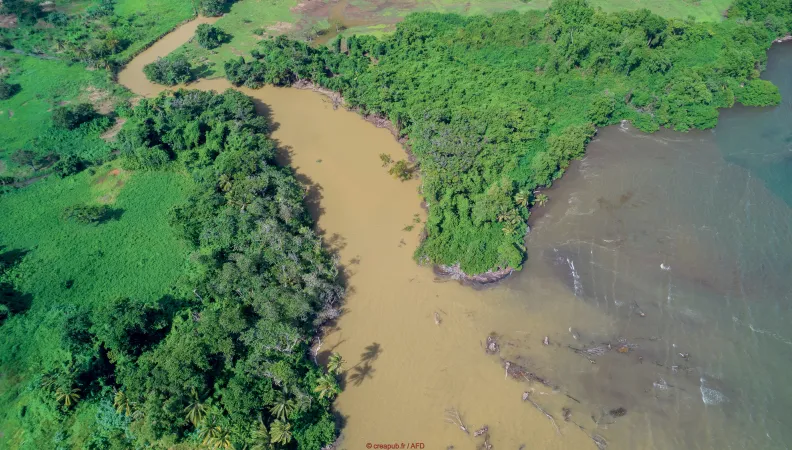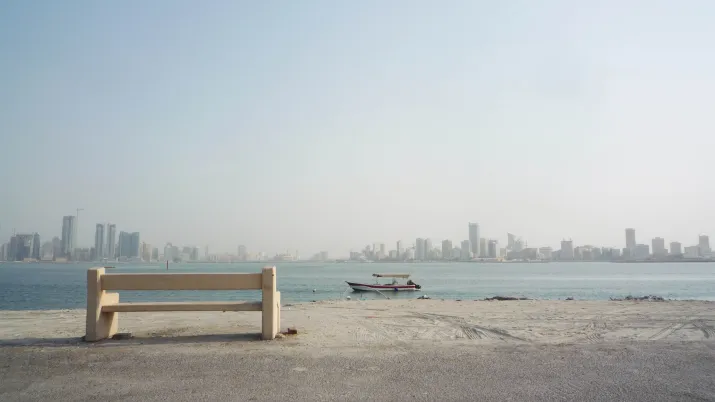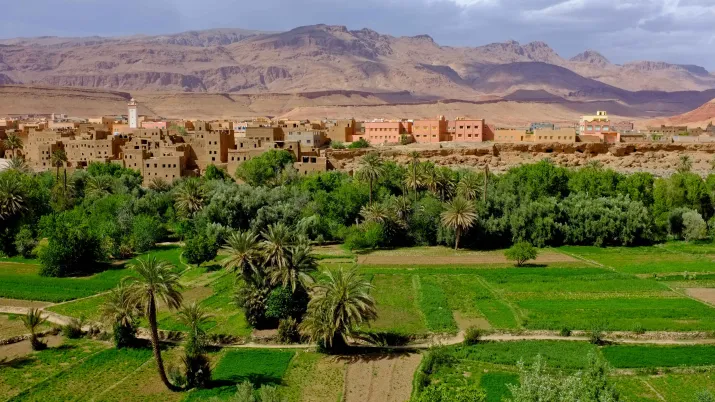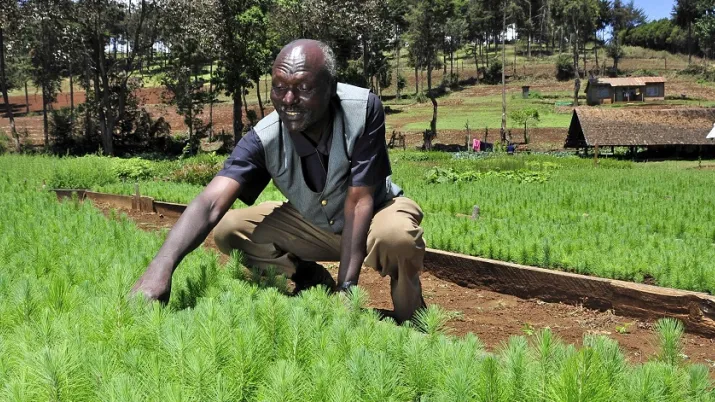Share the page
Climate change and international cooperation - Our work and impact

With the effects of climate change accelerating, it is now essential to take action both to mitigate the causes of climate change and to strengthen populations’ capacities to adapt to its effects. As a French international development cooperation agency, our aim is to help boost the resilience of ecosystems and of our societies.
With the effects of climate change accelerating, it is now essential to take action both to mitigate the causes of climate change and to strengthen populations’ capacities to adapt to its effects. As a French international development cooperation agency, our aim is to help boost the resilience of ecosystems and of our societies.
In line with the Paris Agreement, which recognises the need to limit global warming to below 2°C (and to 1.5°C by 2100), France has set itself the goal of achieving carbon neutrality by 2050 in accordance with the 2019 Energy and Climate Law. It has made some major climate commitments in recent years, including to:
- Reduce greenhouse gas (GHG) emissions by 40% between 1990 and 2030
- Become the second highest contributor to climate finance in the EU, contributing 31% of climate finance in 2023
- The Agence Française de Développement (AFD) is the first development bank to commit to aligning its financing with the Paris Agreement and to adopt a strategy on climate and development, with more than €40 million in climate finance pledged by the Group since 2017
In line with the AFD Group’s strategy, our agency is committed to conduct its work in a low-carbon and environmentally friendly manner.
We also implement projects in over 90 countries with the aim of helping our partner countries to strengthen their capacity to address the challenges of climate change and seize the opportunities it brings. This involves both mitigating the causes of climate change and adapting to its impacts using a holistic and integrated approach.
2024 Hottest year on record
According to a report published by the European Union, 2024 was the hottest year on record. For the first time ever, average temperatures exceeded the symbolic threshold of 1.5°C above pre-industrial levels. A 2°C increase is the threshold above which we can expect to see serious repercussions for the environment and people's health and well-being, with a higher risk of runaway effects.
Our strategic priorities
Our actions help promote more sustainable, resilient, inclusive development that is capable of adapting to climate change and mitigating its causes. They centre around three key objectives:
- Strengthen capacities and foster stakeholder engagement with climate change issues through training; awareness raising; creation of forums for public and private stakeholders to discuss climate change issues; institutional support to reinforce the capacities of public institutions, civil society organisations, and the private sector to integrate climate change into their policies and actions; support for national, local and sectoral decarbonisation strategies; support for the development of climate projects that are likely to win investment; facilitation of access to climate finance; and support for the creation of green budgets and voluntary carbon markets.
- Mitigate the causes of climate change and contribute to the reduction of greenhouse gas emissions through actions to promote the energy transition in various sectors; support for improving energy efficiency, decarbonisation, and the development of renewable energy production; development of low-carbon solutions; and sustainable management of natural resources via support for low-carbon agricultural and forestry practices, the fight against deforestation, and promotion of the circular economy.
Adapt to the impacts of climate change by conducting analyses, assessments, simulations, and scenarios to evaluate specific vulnerabilities; by identifying risks and opportunities related to climate change, and supporting the development of sectoral climate projections; by strengthening early warning systems and integrating water management; by supporting the implementation of resilient agricultural practices to improve food security for populations; by protecting ecosystems and biodiversity through conservation and restoration activities; by developing resilient infrastructure; and by supporting the identification and management of health risks related to climate change.
Our framework for action
Our action aligns with the priorities of the Paris Agreement, which recognises the need to limit global warming to below 2°C and to aim to limit it to 1.5°C by 2100. It also contributes to the achievement of the United Nations Sustainable Development Goals (SDGs), in particular SDG 13, which addresses actions to combat climate change.
We are also actively committed to the objectives set out in France’s 2019 Energy and Climate Law and to the climate and development strategy of the AFD Group, the AFD being the first development bank to commit to aligning its financing with the Paris Agreement.
Our services in this area
Through our range of services, we help support the implementation of governance frameworks that promote sustainable and responsible climate action. In doing so, we help strengthen the capacity of authorities and stakeholders on the ground at local, national and regional levels. Our services include:
- Public and private technical expertise
- Peer-to-peer learning
- Improvement and sharing of knowledge and technology
- Upskilling in the design of complex projects with co-benefits for the climate
- Involvement of local populations in climate policy planning processes and inclusion of their vulnerabilities and needs
- Support in the form of grants and/or subsidies for pilot projects
Ressources à télécharger
FAQs
For more about climate change and international cooperation
According to the UN, climate change adaptation refers to a “wide range of measures designed to reduce vulnerability to climate change impacts”.
Climate change adaptation includes local initiatives such as regenerative agriculture, sustainable water management, and protection against flooding and heat waves, as well as national and international initiatives such as strengthening coastal infrastructure, improving early warning systems, and implementing public policies to address climate risks.
The Intergovernmental Panel on Climate Change (IPCC) defines climate change mitigation as “human intervention to reduce greenhouse gas emissions or increase greenhouse gas removal by sinks.” This includes any national, regional or international action plan aimed at reducing greenhouse gas (GHG) emissions and adopting low-carbon practices while avoiding further emissions.
At Expertise France, we undertake technical cooperation projects to mitigate climate change in the regions in which we operate. More specifically, we support our partners in the development of renewable energies (solar, hydro, etc.) and the implementation of low-carbon strategies.
International cooperation is essential for strengthening the adaptability of the most vulnerable countries with the fewest technical and financial resources, and for contributing to mitigation, insofar as it enables:
- the raising of climate finance (Green Climate Fund, Global Environment Facility, etc.)
- the strengthening of public institutions so that they can incorporate climate change adaptation and mitigation into their policies to deal with heat waves and natural disasters
- the promotion of coordinated action between governments, the private sector and civil society
Expertise France plays a key role in climate change mitigation and adaptation and is active in many areas, providing partners with multi-sector technical expertise and a multi-stakeholder approach that brings together the public sector, private sector, research institutes, businesses, local authorities, and others.
In 2023, out of the €7.5 billion in climate finance pledged by the Agence Française de Développement (AFD) Group, €3 billion was specifically allocated to adaptation projects. For its part, Expertise France put its name to nearly €200 million in high-impact climate projects in 2024, demonstrating our growing presence in the field of climate change mitigation and adaptation.
Concrete examples can be seen in several projects implemented or supported by Expertise France across the world:
- EUROCLIMA: This project aims to support the green transition, especially in the Caribbean, through efforts to adapt to climate change and protect and conserve biodiversity
- Sustainable Cities Ghana: This project aims to develop resilient urban infrastructure and improve water management
- Amazonia+ and AMABIO: These initiatives aim to protect Amazonian ecosystems from the effects of climate change and to defend indigenous communities.
These projects highlight the variety of settings (urban, rural, forest) in which action is being taken, and the tools used to address climate risks, all of which are closely aligned with national strategies and the objectives of the Paris Agreement.
Our agency also undertakes climate change mitigation projects, with a particular focus on energy and sustainable development (i.e., green budgeting). Examples include:
- Sustainable Cities Ghana: This project aims to implement measures to improve waste management
- Low Carbon Transition Côte d’Ivoire: This multi-sector project aims to collaboratively build a decarbonised economy to support growth and put the country on the path to low greenhouse gas emissions
Our projects



Key figures
- €200 million in high-impact climate projects agreed in 2024 (DAC 1 & 2)
- 56 climate projects
- €347,5 million in multi-year funding for climate projects
- 90 partner countries are receiving support through Expertise France climate initiatives
Our other focus areas
- Agriculture
- Energy
-
Biodiversity
-
Circular economy
-
Sustainable cities and transport
-
Water
